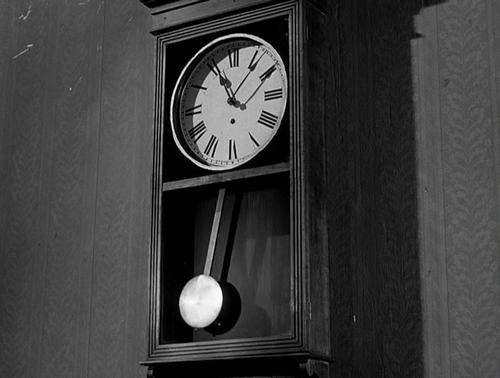Both of you who are still here, many thanks for your patience during my long absence.
The title’s a pop culture reference to some band my mom listened to a lot. Garfunkel and Oates, I think…
Okay, I’ll warn you right up front, this post is going to annoy some of you.
I wanted to talk with you for a few minutes about cooking. As I’ve mentioned in the past, cooking and writing are great parallels. There are certain rules that must be followed, but there’s also a degree of personal style and taste involved for both the creator and the consumer. We also understand that while almost all of us can do it on a simple, day-to-day level, there’s a big difference between that and cooking on a professional level as a chef.
In cooking, we understand there are certain time elements that can’t be changed. A three minute egg needs to boil for (big surprise) three minutes. I can’t bake a cake in half the time by turning the temperature up twice as high. Trying to speed these things up doesn’t improve them. We all get that. We all understand it.
This is true in a lot of things. If I’m building a house, I need to let the concrete in the foundation set before I start working on the frame. Doctors often need to do procedures in multiple steps to give the patient time to heal. It’s boring as hell, but sometimes you actually just need to watch paint dry.
Likewise, I think there’s a time element in writing. The more it gets rushed, the more I end up with… well, a burned cake. Or a crappy foundation. Or severe hemorrhaging. Or a lot of smeared paint. Pick your favorite metaphor.
That being said, there’s a lot of pressure to rush through writing these days. I’ve seen more than a few would-be gurus pushing a business model of quantity over quality. The ease of publishing through Amazon has made the idea of moving slow seem… well, clunky and antiquated. It draws comparisons to, dare I say it, dinosaurs. And with the raw amount of stuff being e-published, I think all of us have a lurking fear that if we don’t get our idea out there now, someone else is going to have it out there first thing tomorrow.
But the most important thing, above all others, is for me to write well and write something good. Churning out 6000 words a day or 300 pages for NaNoWriMo is an achievement, yes. But it’s better to have 2000 good words and 200 polished pages if I want to do something with them.
Odds are, that’s just not going to happen in my first draft. Or my second draft, especially if that’s just a quick pass with the spellchecker. Or my third. Maybe not even my fourth. Oh there’s always a chance that my first book is just pure gold on the first pass, but the majority of us just don’t have the ability or the experience to put out material that doesn’t need work.
Yes, us. The book I just turned in took six months, start to finish. It went through four drafts, and there’s no question in my mind it’s going to get another. In the end, I even asked my editor for more time. Because it needed more. A lot of my word choices, my phrasing, my structure… it was all first-pass stuff. It wasn’t really bad, but it also wasn’t good. Definitely not great (although I like to think there were still a few moments of greatness in there somewhere).
Writing takes time. Like the cake or the surgery or the paint, I can’t rush through an edit draft in a day and expect to get the same results as someone who spends three weeks going over their manuscript line by line. My first draft is never going to be as good as someone’s fifth or sixth draft.
Because of this time factor (ready for more angry comments?), I often find myself questioning people who say they wrote a book in a month. Or even six weeks. I completely believe a draft can be written in that amount of time. I wrote the first draft of 14 in about six weeks. But a finished book manuscript? Something ready to hand off to an editor?
You’ve probably heard of Stephen King. You probably also know how often he’s been mocked and criticized numerous times for the speed he puts out books. I mean, he’s got to be putting out how many novels a year?
Two. That’s it. Less than that on average, really (although he did have a bit of a dead zone (zing!) after getting hit by that van). In forty years of professional writing, he’s barely had fifty books published. And so many people still call him a hack because he churns stuff out at such a fast rate…
Now, going slow isn’t an ironclad rule. Just a few weeks back I pointed out that some folks go so slow they pretty much come to a dead stop. And sometimes everything just lines up and a draft takes a few days. No two projects are the same and no two writers are the same.
But if every draft of every project goes fast… maybe I should take an effort to slow down for a while and see how it affects my writing.
Because the goal for all of us is to be great. Not to rush toward good and stop when we get there.
Next time I’d like to have a quick chat about zombies. And vampires. And mysteries.
Until then, go write.




0 replies on “Slow Down, You Move Too Fast”
Thank you sir for your return. I've found that when I speed things up, trying to churn out page after page after page, I speed my mind up, so to speak. While not always bad, what it does to me is throw my brain askew. I'm thinking about the next four steps before I've crafted that first step. This modern society wants everything NOW and, sadly, it's why we've lost so much quality. Thankfully, most writers shun that particular way of thinking and produce well crafted stories I love to lose myself in..
P.S. Can't wait for the next EX novel
P.P.S. So baking a cake at 600 degrees won't speed things along…sigh, wish my teenage self knew that. 😉
Yeah, I learned that lesson at a young age with pancakes… 🙂
I know what you mean about getting ahead of yourself. I do that sometimes, too. I know I'm going to go back, though, and probably spend the time to get it all right on other drafts.
P.S: next Ex book, October 6th
Thanks for another great article! I have a question regarding drafts: How similar are your drafts in terms of character arcs and overall plot?
I finished a first draft of a novel a few weeks ago, and I am currently working on a second draft that eliminates a main character, and while the plot is similar, the pacing and specific scenes only have a passing resemblance to the first draft. I'm worried that I'm going to keep writing something different every draft so that I'll never actually be finished.
P.S. Getting so excited for The Fold!
Matt–it's tough to say because every project's a little different. There are three drafts of The Fold that are all very different, except in the broadest of strokes, but most of the Ex books have stayed pretty solid all the way through.
Don't freak out too much about changes in a second draft. Think of diamonds, and how much gets cut off that big black lump to make an engagement ring-quality gemstone.